![Event Planning Template - [Learn How to Plan a Great Event!]](http://royalcdkeys.com/cdn/shop/articles/image1-1690483050097.jpg?v=1719514913&width=1100)
Event Planning Template - [Learn How to Plan a Great Event!]
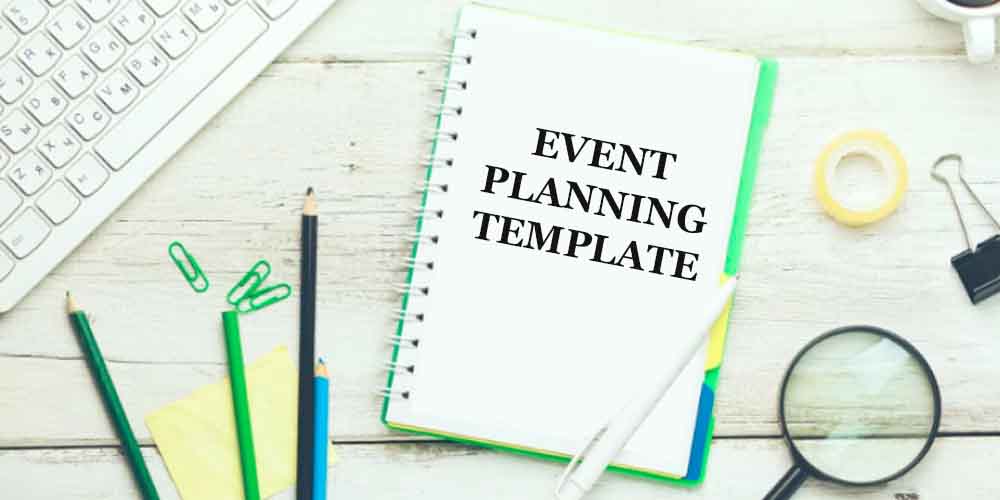
Every successful event needs a pre-built plan. Besides, any plan you consider implementing will contain multiple aspects you must fulfill and organize. Here, in this article, we mention all these aspects and how to use an event planning template. Having said this, let's go straight for it!
Event Planning Template - [Learn How to Plan a Great Event!]
What Is Event Planning?
Event planning corresponds to all the activities involved in organizing an event. An event could be a party, a festival, a congress, a music concert, a gathering, etcetera. Generally, a professional event planner organizes all event details for the venue's success.
In general, organizing an event takes a lot of work. For this reason, event planners consider multiple factors and divide the organization into four stages, which we explain below.
Event planning can be divided into four main stages:
Planning, or event preparation. In this stage, you do the market research and write the plan to start with the event planning process. In this stage, you also calculate the estimated budget and select the vendor and the right venue for your purposes.
Event promotion. Here you adopt general marketing strategies to promote your events, such as social media marketing, advertising, SEO, word-of-mouth marketing, and more.
At-event management. This is when you manage your event in real-time by delivering the planned experience and capturing insights. Here you can also notice what is working and what is not.
Post-event review. At this point, you reconcile budgets, share insights, highlights, and media, check analytics, and thank everyone involved.
Event planners, in general rule, work on everything, from inviting the event attendees to managing the event schedule and more.
Why Should Your Company Use Event Planning?
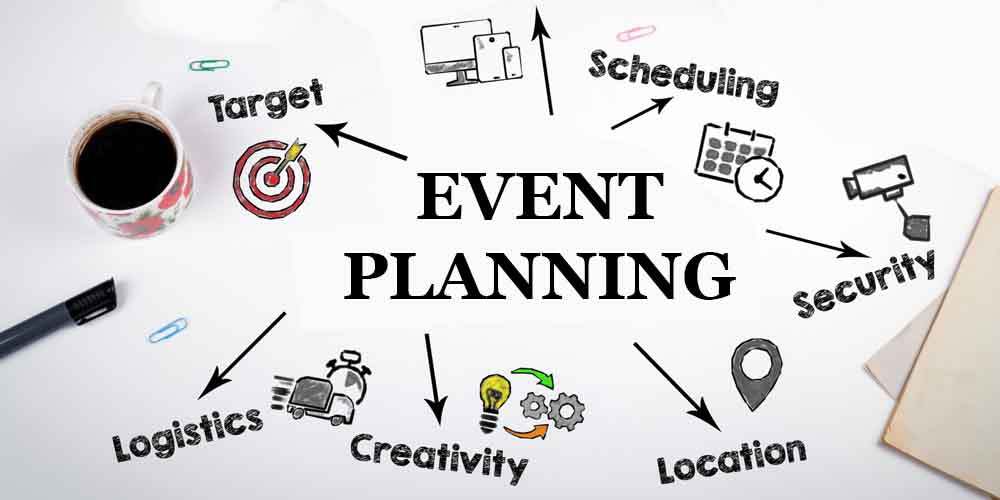
A successful event may bring multiple benefits to your organization. Two benefits are increasing your company's reputation and strengthening community engagement. Other benefits that an event offers are the following:
Give back to your employees;
Encourage networking;
Draw into more business.
Besides, if your organization uses a suitable event template to plan current and future events, it also will bring multiple benefits to your company. For example:
You can visualize your event tasks and plan in a timeline;
It allows you to create an internal event checklist for internal team members to check if everything is on wheels.
You can organize a Gantt chart to easily understand what tasks depend on others and how to overcome blockers. Besides, it allows you to assign tasks to the most competent workers.
Quickly share events updates and check if the effort aims for the final event’s purpose.
Plan milestones to reach the final event objective.
Manage daily tasks according to event information.
What Elements Should Proper Event Planning Contain?

After knowing the four stages of event planning, it’s mandatory to mention some crucial features that all planning events should contain to ensure the event’s progress.
Event timeline. It indicates how long the event will take and the key milestones happening during that event.
Event expected budget. It considers the general budget and the cost of every task within the project.
Contracts and other important documents. You should include all the essential agreements in your event planning business template. This way, you and your team know what they need to accomplish and what are the conditions of the job.
The guest list. Guests are the kings of the party. Everything you and your team do in the event is designed and thought of for guests. So, consider all guests that are important for the event.
Logistical details. In this document, you can describe all logistic movements and technical needs you require to carry out the venue.
Critical daily tasks. Sometimes events can last various days. If this is the case, the event planning template should help you to organize and describe individual tasks in key areas.
Schedule. Having all the participants on the same page involves creating a precise schedule of all activities and tasks of the event. This way, each response can fulfill its task to provide an outstanding experience during the event.
Post-event evaluations. The best events out there conduct a post-event evaluation or review to know if attendees are satisfied with the presentations or the events. You can even run post-event evaluations to understand key metrics, what you did well, and what you did wrong.
How to Create an Event Plan?

Creating an event can be a real challenge. For this reason, planning an event is crucial to perform a venue from the beginning to finish correctly. Besides, event planning is even beneficial when you must present ideas to other investors and several teams.
1. Create an Event Planning Checklist
The first is to create an extensive event planning checklist containing all the possible activities, features, and tools you and your team will need to carry out the venue. Some of the features that you can’t miss are the following:
Event goals and objectives;
The event’s target audience;
The market research;
The estimated event budget;
The event name;
Booked event venue;
Marketing plan and timeline;
Vendors and sponsorship;
Launch the event through a website;
Launch the marketing campaign;
Launch an email marketing campaign;
Booked presenters and speakers;
Insurance and health and safety compliance;
Catering;
Audiovisual and lighting;
Event staff;
Ordered event signage;
Involved local or industry press;
Review and analyze event success.
2. Define the Main Goal of the Event
Beyond all the elements your checklist may contain, you must define the event's primary goal in the second place.
What are you trying to achieve?
Do you need to organize a product launch?
Do you need to collect donations for a specific public project or charity initiative?
Whatever the case, being clear about your event's goal will help define the best route to reach that goal.
3. Define the Event Marketing Timeline
An event is about multiple things and activities that happen on previous days, during the event, at the same time, and once the event has finished. Because of it, creating a timeline where every aspect of the event is indicated is crucial.
It would help if you established all the due dates and the starting and ending hours of every activity and task. In this sense, you can create a Gantt chart in a spreadsheet format where tasks as activities are connected. This way, you can set the planning steps for all these tasks and better organize general activities.
4. Organize your Event Team
All the activities you planned for your event will be carried out by specific teams that will be prepared for any setback. Team events are crucial since you will delegate most of the work to them. An excellent way to organize a team is by using an organizational chart like the one below.
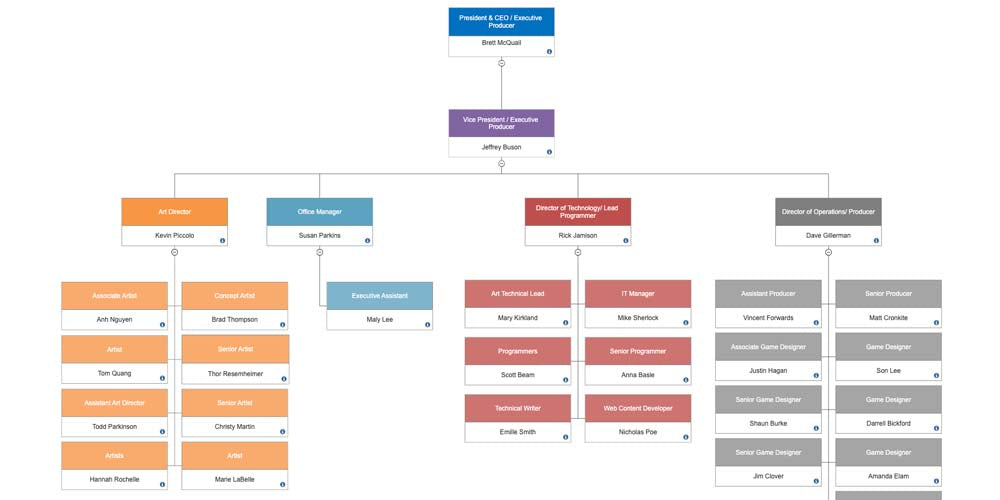
5. Establish Your Budget
When starting a new event planning, it's essential to use an event budget template to describe and explain the current budget for the specific event. To do this, you need to understand how many activities you will run and how much they cost.
You must determine an estimated budget for the entire event. This way, your economics will be controlled, and you’ll avoid future issues.
Consider all the factors and activities and all the participants to assess the main costs of the event. This way, when you talk with other stakeholders, you can estimate the total cost of the event.
At this point, you should check if your event planning aligns with the budget you've calculated. Sometimes, some of these items may not have fixed costs. Anyway, it's crucial to make rough estimations to decide when you can afford them. In this sense:
You need to include payments for rentals for rooms, halls, and dependencies.
The budget you need to allocate for the staff. This includes transportation, meals, lodgings, etcetera.
You need to consider the budget for musicians, DJs, and speakers.
Budget for decorations, design, flowers, lights, etcetera.
You also need to consider the budget for marketing, i,e., the money you spend on marketing for your event.
A/V. All devices include speakers, microphones, projectors, cables, etcetera.
6. Set the Date and Book Your Venue
Establishing the proper event date is the most crucial aspect of any event planning template. In this context, you must define:
What is the best date for the event?
Which games are the best for more people to attend the event?
7. Define KPIs to Measure Your Event’s Success
Measuring the success of your event is crucial to make future changes or repeating some fundamental actions. Some key KPIs for measuring an event's success are the following:
The number of actual attendees that assisted the event.
The percentage of attendees who gave money to the cause.
The number of contracts you closed and celebrated during the event.
8. Identify Sponsors and Partners
Your event will likely need resources to be a total success. You should contact sponsors or partners that can finance your event. Present them with a unique value proposition from which both parties benefit. Of course, it's better if sponsors are closely related to your company or the event's primary objective.
9. Define the Event Revenue Model
Although sponsors can provide you with enough money to plan an event, you must find your way of capitalizing on the event. The most common revenue models are the following:
Festival: 30% Sponsorship, 20% Concessions, 50% Ticket Sales.
Conference: 50% Delegate Tickets; 50% Sponsorship.
SMB: 100% Internal Investment.
Charity: 60% Entrance Fees, 30% Onsite Donations & Concessions, and 10% Sponsorships.
10. Do the Final Preparations
In this final stage, you can consider the event safety plan or any other relevant preparation. For example:
Reducing risk.
Creating information for employees or attendees.
Organizing contractor health and safety.
First aid, toilets, and wash facilities.
Parking.
Waste removal.
Food health and safety.
Free Event Planning Templates
Now we are sharing a couple of free event planning templates that will be very useful for your next event to design a successful venue carefully. Besides, to quickly edit these templates, you'll necessarily use the Microsoft Office suite, which you can acquire here on RoyalCDKeys.
Get a reliable copy of the Microsoft Office 2021 Professional Plus Key Retail Global at the lowest price on the market. Just for €4,20!
Event Planner Template
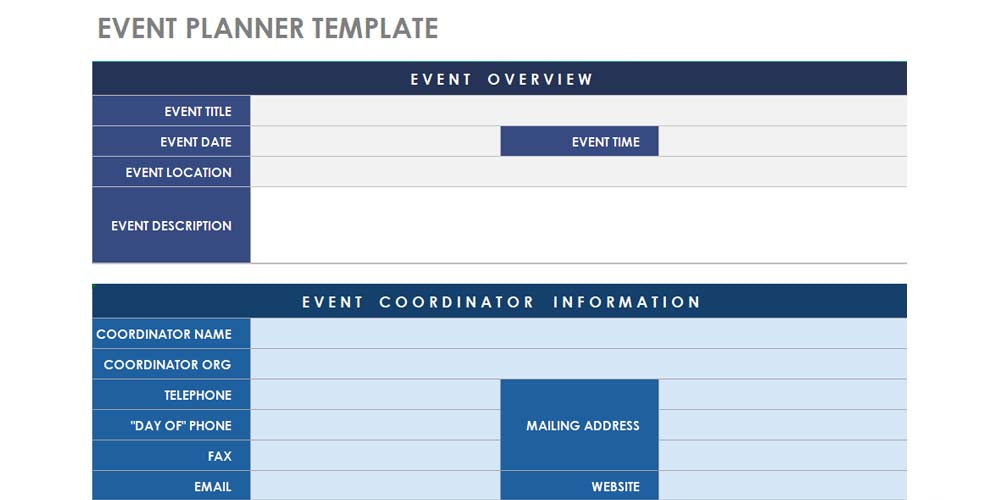
This free event planning template is very straightforward since it contains all the sections for specific information, such as the event coordinator information, the task checklist, and specifications. By default, this document brings multiple questions from the custom fields. The only thing you'll need to do it's answering these questions and describe technical specifications. Of course, since this is an MS Excel document, you can add rows and answers you need to define your event better.
You can download this event planner template from Smartsheet.
Free Event Planning Template
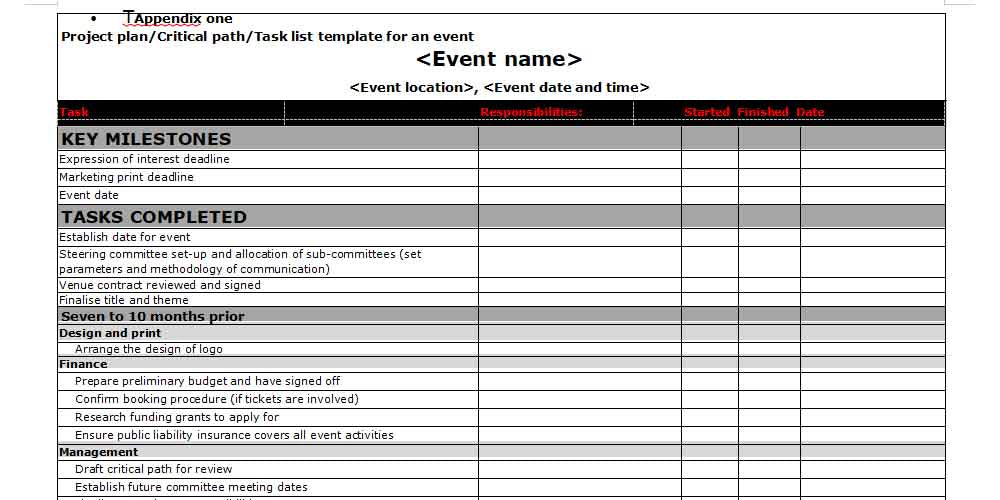
This template corresponds to a Microsoft Word document, and it's more of a task checklist that you can use to check all activities, and delivery responsibilities, set schedules, and track results. It's divided into three prior categories. Each category has a section for management, finance, marketing, entertainment, etc. This distribution helps you to better organize responsibilities so everyone can easily track activities.
You can download this free event planning template from Templatelab.
Event Planning Worksheet
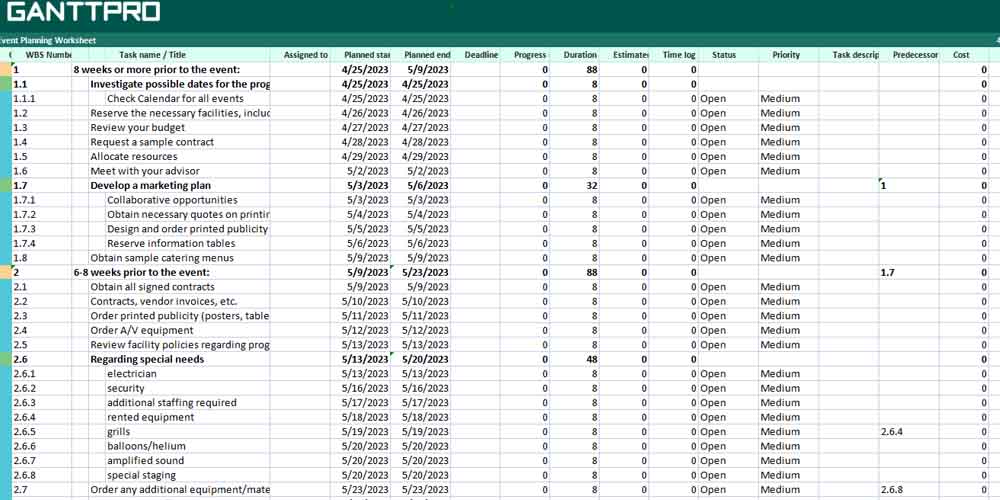
This template is an easy-to-use spreadsheet document where you can quickly insert and organize all the needed activities for event planning. Each column gives unique information about the start and end date, the priority, and the duration of each task. With this file, you can track the overview event progress and determine the total cost of each particular activity. This template is easily adaptable to any business since you only need to replace data.
You can download this event planning worksheet from Ganttpro.
Event Planner and Timeline Template
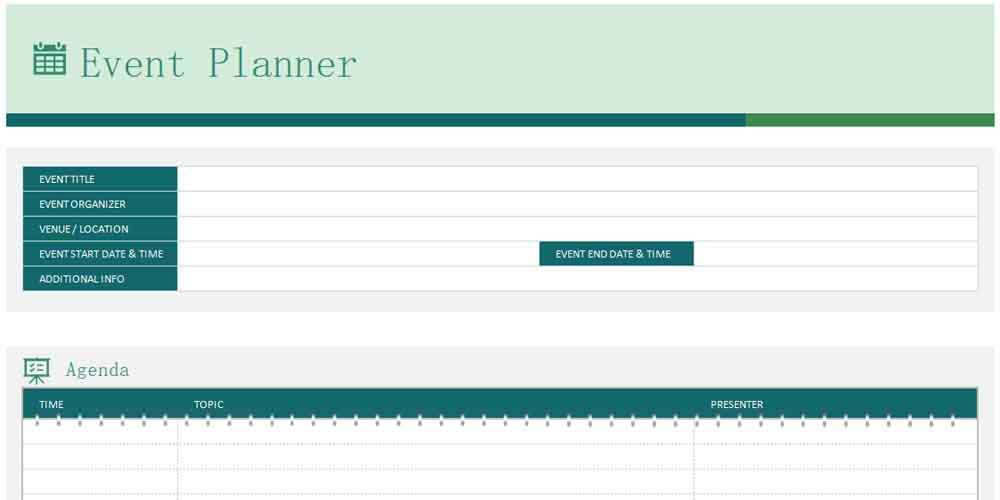
This document is more straightforward than the previous one since it contains just a few cells to insert crucial information about the event. This template brings enough space to describe the agenda, its respective timeline and activities, the classic event checklist, and the event categories. It’s a simple document you can leverage when planning a small event.
You can download this event planner and timeline template from Create.Microsoft.
The Bottom Line
That was everything about this topic. Last but not least, just say that events must be carefully planned and consider the abovementioned factors. Events will open you to many benefits, including celebrating new contracts. Events are the cornerstones to growing your organization!















